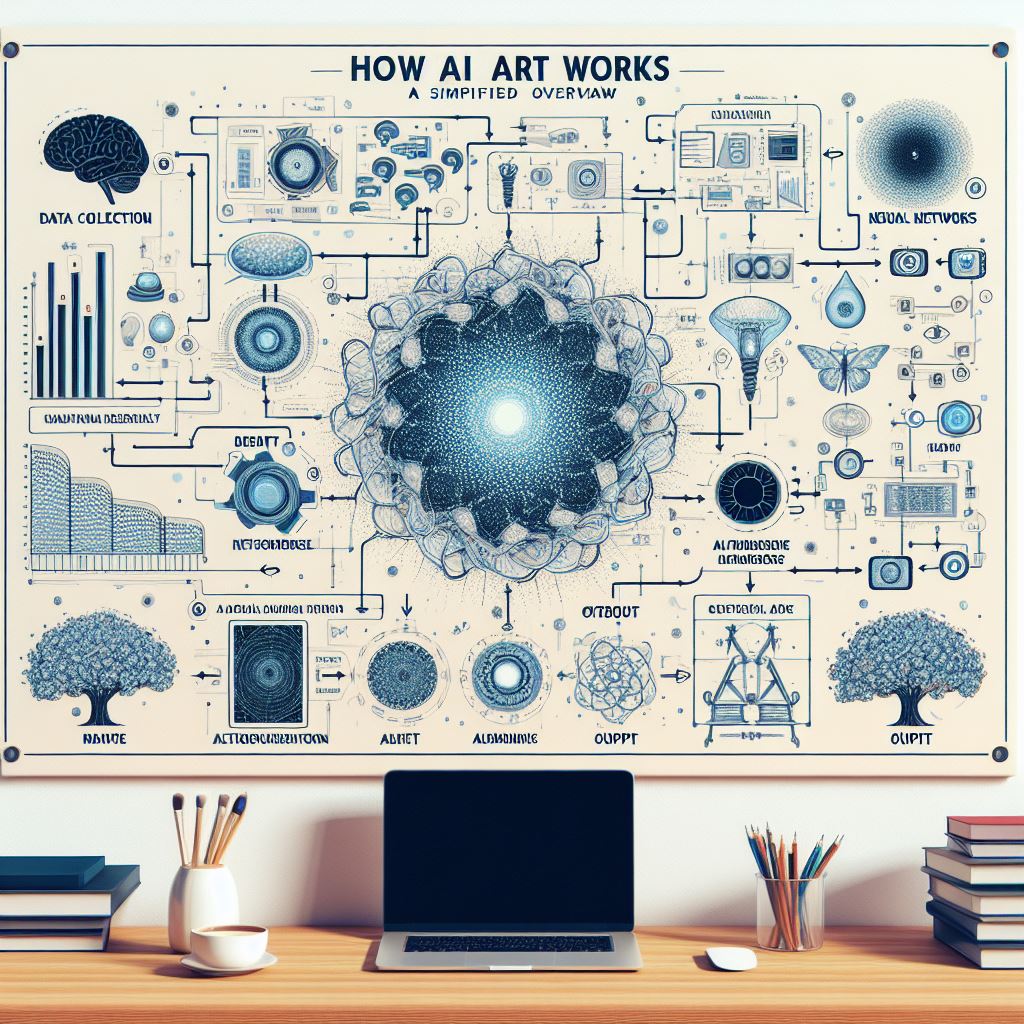Introduction
In today’s world, the pressing need for sustainable practices has become more critical than ever. With the escalating environmental challenges such as climate change and resource depletion, it is evident that our future is at stake. However, there is hope in the form of Artificial Intelligence (AI), which is proving to be a transformative force in sustainability efforts. AI’s capability to analyze vast amounts of data and generate valuable insights is revolutionizing sustainability practices across different sectors. As we delve into the potential of AI in addressing environmental issues, it becomes clear that it has the power to drive significant positive change for the future of our planet.
AI Applications Transforming Sustainability

AI-driven Energy Management Systems for Efficient Resource Utilization
AI-driven energy management systems leverage advanced algorithms and data analytics to intelligently optimize energy consumption, effectively curbing wastage and championing the efficient utilization of resources. These innovative systems harness the power of artificial intelligence to analyze and predict energy demands, enabling precise adjustments and real-time optimizations across various energy-intensive processes. By dynamically adapting to fluctuating conditions and patterns, they streamline operations, minimize inefficiencies, and proactively identify opportunities for conservation, thereby fostering a sustainable and eco-friendly approach to energy utilization.
Optimizing Supply Chains and Reducing Environmental Footprints with AI
AI is transforming supply chains by using advanced algorithms and machine learning models to optimize logistics and resource allocation strategies. This enables businesses to reduce their environmental footprints by accurately forecasting demand, managing inventory levels, and routing goods intelligently. Predictive analytics helps companies to minimize overproduction and waste, leading to lower energy consumption and carbon emissions. AI also facilitates smarter decision-making by dynamically adjusting logistics routes based on real-time data, weather conditions, traffic patterns, and other variables. By identifying opportunities for sustainable sourcing and eco-friendly materials, AI-enabled supply chains can contribute to reducing the environmental harm caused by resource extraction and utilization. Overall, AI can help businesses achieve more environmentally conscious and efficient supply chains, reducing waste, conserving resources, and making significant strides toward sustainability and environmental responsibility.
Waste Reduction and Recycling Innovations through AI Technologies
AI innovations revolutionize waste reduction and recycling, optimizing waste management practices for a circular economy. These technologies facilitate more efficient sorting, processing, and recycling of materials, enhancing resource recovery while minimizing landfill waste. By employing advanced algorithms and robotics, AI systems identify recyclables, reducing contamination and maximizing reusability. This approach not only conserves resources but also promotes a sustainable cycle of production and consumption. AI-driven solutions revolutionize the waste landscape, fostering a more eco-conscious approach that aligns with circular economy principles, where materials are repurposed, reducing environmental impact while promoting a more sustainable future.
AI’s Role in Reshaping Industries for Sustainability
AI’s Influence on Agriculture for Sustainable Food Production
AI revolutionizes agriculture by optimizing crop yields and curbing waste, facilitating sustainable food production. These technologies employ machine learning to analyze vast datasets, offering insights into soil health, weather patterns, and crop conditions. By predicting optimal planting times, resource allocation, and pest control, AI enhances yield while minimizing resource usage. Furthermore, precision agriculture techniques, like drones and sensors, enable targeted interventions, reducing chemical usage and environmental impact. This amalgamation of data-driven decision-making and innovative tools ensures efficient farming practices, fostering sustainable food production. AI’s role in agriculture heralds a future where technology harmonizes with nature, supporting increased yields while mitigating waste and promoting environmentally friendly farming.
AI-powered Innovations in Clean Energy Development and Utilization
AI’s pivotal role in clean energy development accelerates the shift to sustainability. Through predictive modeling and data analysis, AI optimizes renewable energy production, enhancing efficiency and grid stability. Its capabilities drive innovation in harnessing clean energy sources, vital for achieving a sustainable and eco-friendly energy landscape.
Sustainable Business Practices Enhanced by AI-driven Strategies
Artificial intelligence (AI) enables businesses to enhance their sustainability initiatives by optimizing operations through data-driven insights. AI enhances efficiency and facilitates responsible sourcing practices, leading to improved resource utilization, waste reduction, and a dedication to environmentally friendly practices. This integration of AI promotes a more sustainable business environment.
Overcoming Challenges and Ethical Considerations
Addressing Challenges in Implementing AI for Sustainability
The potential for AI to significantly contribute to sustainability is hindered by various implementation challenges, particularly concerns regarding data privacy and infrastructure requirements. Achieving a balance between utilizing data for AI applications and protecting privacy necessitates the implementation of strict regulations. Additionally, the establishment of scalable and resilient infrastructure for AI demands substantial financial investments. Overcoming these obstacles requires a careful equilibrium between fostering innovation and safeguarding privacy rights, emphasizing the need for collaborative efforts to address these challenges and fully realize AI’s potential for a sustainable future.
Ethical Considerations in AI Applications for Environmental Purposes
When using AI for environmental purposes, it is crucial to prioritize ethical considerations. This includes guaranteeing fairness, transparency, and accountability in AI systems. It is important to ensure that the use of AI does not disproportionately impact any particular group or community. Transparency in how AI is used and accountability for its outcomes are also essential to maintaining ethical standards in environmental applications of AI.
Case Studies and Success Stories
Showcasing Specific Case Studies Highlighting AI’s Impact on Sustainability
AI has significantly impacted sustainability through smart grids that optimize energy use and AI-powered recycling systems. These technologies have been showcased in numerous case studies, demonstrating their ability to improve resource efficiency and reduce environmental impact. AI continues to play a crucial role in advancing sustainability efforts across various industries.
Demonstrating Success Stories and Tangible Outcomes Achieved
Success stories abound, demonstrating the tangible outcomes achieved through AI-driven sustainability initiatives.
Future Possibilities and Innovations
Exploring Future Trends and Potential Advancements in AI for Sustainability
The future of AI in sustainability is full of promising opportunities. AI has the potential to revolutionize climate modeling and contribute to more accurate predictions. Additionally, the development of autonomous electric vehicles powered by AI technology could significantly reduce carbon emissions and improve overall environmental sustainability.
Predictions on How AI Will Continue to Revolutionize Sustainability Practices
AI’s advancement is expected to greatly impact sustainability efforts, fostering new innovations and advancements in this crucial area. The technology’s potential to analyze and optimize complex systems could lead to more efficient resource management and environmentally friendly practices, ultimately driving positive change for the planet.

Conclusion
In conclusion, AI is revolutionizing sustainability efforts by driving innovation and progress across diverse sectors. The potential of AI-driven sustainable solutions is immense, and further exploration and adoption of these technologies will be crucial in addressing environmental challenges and building a sustainable future. We must continue to embrace and invest in AI to create a more sustainable world for future generations.
Related Content
- The Role of AI in Promoting Eco-Conscious Lifestyles: Sustainability in the Digital Age
- Revolutionizing Neuroscience: AI’s Pivotal Role in Brain Research and Neurological Health
